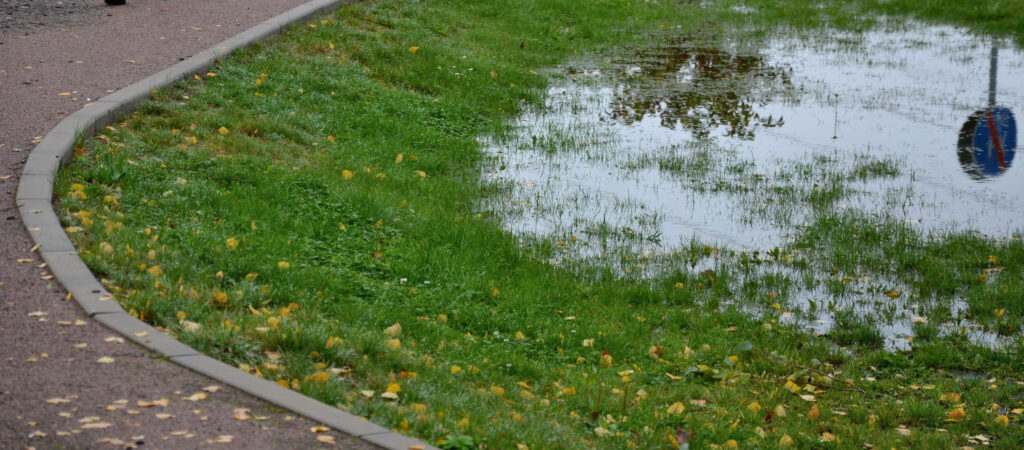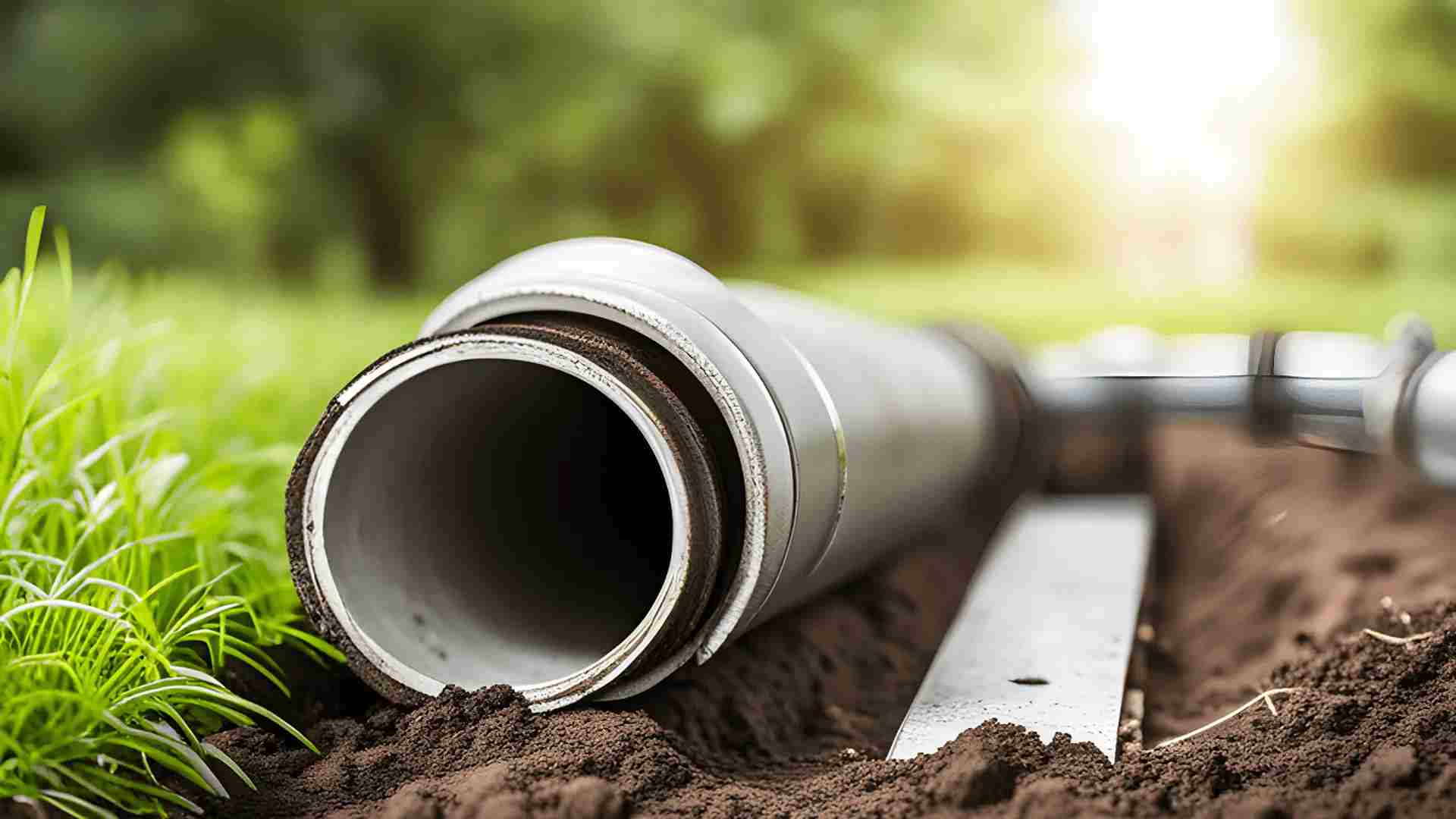Living in Liberty Township means enjoying beautiful landscapes, but it also means being vigilant about drainage issues. One of the best ways to spot potential problems early on is to keep an eye out for any standing water, especially after rainfall. If you notice areas of your yard that stay soggy or have slow drainage, it could be a sign of an underlying issue. Plus, places like Liberty Heritage Nursery Farm can offer valuable insights and tips for maintaining proper drainage to prevent major problems down the road.
Understanding Drainage Systems
Before we dive into spotting drainage issues, it’s essential to have a basic understanding of drainage systems. In Liberty Township, like in many other areas, drainage systems are designed to carry excess water away from structures, yards, and roads. Proper drainage prevents waterlogging, erosion, and potential damage to property.
The primary components of a drainage system include:
Gutters and Downspouts:
These are typically attached to roofs and direct rainwater away from the foundation of buildings.
Drainage Pipes:
Underground pipes carry water from gutters, downspouts, and surface runoff to designated outlets, such as storm drains or detention ponds.
Grading and Sloping:
The natural slope of the land or intentional grading helps water flow away from structures and towards designated drainage points.
Signs of Potential Drainage Issues

Standing Water:
One of the most obvious signs of a drainage problem is standing water in your yard, driveway, or other areas. After a rainfall, take a walk around your property and look for puddles that linger for an extended period. Areas where water accumulates can indicate poor drainage or improper grading.
Soggy or Swampy Areas:
Soggy or swampy areas in home lawns of Liberty Township may indicate drainage issues. To identify and fix these drainage issues, start by inspecting the grading, gutters, and downspouts. Consider installing French drains or creating rain gardens to improve water flow. Consult with local experts like Liberty Heritage Nursery Farm for personalized guidance on addressing drainage issues effectively.
Erosion and Soil Washout:
Keep an eye on your yard for signs of erosion, especially near slopes or areas with concentrated water flow. Soil washout, visible as exposed roots or bare patches, indicates that water is not properly draining and is carrying away soil particles.
Foundation Cracks or Water Intrusion:
Inside your home, be on the lookout for cracks in the foundation or signs of water intrusion, such as damp walls or musty odors. Poor drainage can lead to water pooling around the foundation, causing structural issues over time.
Inspecting Your Property
When detecting and fixing lawn drainage problems early in Liberty Township, start by inspecting your property for signs like standing water or soil erosion. Check gutters, downspouts, and grading, and consider installing French drains or rain gardens. Consulting with experts like Liberty Heritage Nursery Farm can provide tailored solutions for effective drainage management and preserving your lawn’s health.
Walk the Perimeter:
Start by walking around the perimeter of your home. Look for areas where water may be pooling or flowing towards the foundation. Pay attention to low spots in the yard, as these can become collection points for water.
Check Gutters and Downspouts:
Inspect your gutters and downspouts for debris, clogs, or damage. Clean out any leaves, twigs, or other obstructions that may impede water flow. Make sure downspouts extend at least a few feet away from the foundation to direct water away.
Assess Grading:
Evaluate the grading around your property. Ideally, the ground should slope away from the foundation, allowing water to naturally flow away. If you notice areas where the ground slopes towards the house, it may need to be regraded to improve drainage.
Look for French Drains:

If your property has a French drain system installed, check for any signs of blockages or damage. French drains are designed to redirect groundwater away from structures, but they can become ineffective if not maintained properly.
Inspect Storm Drains:
If there are storm drains near your property, ensure they are clear of debris and functioning correctly. Clogged storm drains can lead to localized flooding during heavy rainfall.
Test Drainage Patterns:
During a light rain shower, observe how water flows across your property. Note any areas where water accumulates or flows in unexpected directions. This can help identify potential problem areas that need attention.
Seeking Professional Advice
While you can do a lot on your own to spot potential drainage issues, sometimes it’s best to seek professional advice, especially for more complex problems. Here are some instances where consulting a drainage expert or landscaper might be beneficial:
Persistent Drainage Problems:
Persistent drainage problems in Liberty Township may require professional assistance. Drainage Solutions Services offers expertise in assessing and resolving complex drainage issues. From installing French drains to grading solutions, their team can provide tailored solutions to ensure effective water management on your property. Don’t let drainage problems persist – consult with experts for long-term solutions.
Landscaping Solutions:
For landscaping solutions in Liberty Township, consider Landscaping Services. Their expertise includes evaluating topography, soil composition, and drainage needs to recommend appropriate solutions. Whether it’s creating rain gardens, installing swales, or regarding problem areas, their team can enhance your property’s drainage system while beautifying your landscape. Trust Landscaping Services for comprehensive solutions that blend functionality and aesthetics seamlessly.
Drainage System Installation:
If you’re considering installing a new drainage system, such as a French drain or dry well, consulting with a professional can ensure it’s done correctly and meets local regulations.
Sump Pump Evaluation:
If your property has a sump pump or you’re considering installing one, a professional can assess your needs, recommend the right equipment, and ensure proper installation and maintenance.
Municipal Regulations:
In some cases, drainage issues may involve compliance with municipal regulations or permits. A professional can navigate these requirements and ensure your drainage solutions meet legal standards.
Preventative Maintenance Tips
In addition to spotting potential drainage issues early, practicing preventative maintenance can help mitigate problems and prolong the lifespan of your drainage system. Here are some tips:
Regularly Clean Gutters and Downspouts:
Clean gutters and downspouts at least twice a year to prevent debris buildup and clogs that can impede water flow.
Trim Vegetation:
Keep trees, shrubs, and plants near your home trimmed to prevent roots from infiltrating drainage pipes or causing soil compaction that hinders water absorption.
Monitor Soil Moisture:
Use a moisture meter or visually inspect soil moisture levels to ensure proper drainage and prevent overwatering or waterlogging.
Install Proper Landscaping:
Choose plants and landscaping features that promote good drainage, such as native species with deep root systems or permeable paving materials that allow water to infiltrate the
FAQs
How do you know if you have a drainage problem?
You can tell if you have a drainage problem if you notice standing water or soggy areas in your yard after rain. Signs like soil erosion, foundation cracks, or slow-draining fixtures can also indicate drainage issues. Consulting with a professional or utilizing resources like Liberty Heritage Nursery Farm can help diagnose and address the problem effectively.
What is the common problem of the drainage system?
One common problem with drainage systems is clogging due to debris accumulation in gutters and downspouts, leading to water backup and potential water damage. Poor grading or slope can cause water to pool around structures, resulting in erosion and foundation issues. Inadequate maintenance and aging infrastructure can also contribute to drainage system failures over time.
How will you solve the problem of drainage in your area?
To solve the drainage problem in our area, I would start by conducting a comprehensive assessment of the existing drainage infrastructure, identifying areas of concern such as clogged gutters or improper grading. Next, I would implement a proactive maintenance plan, including regular cleaning of gutters, repairing any damaged drainage pipes, and optimizing grading to ensure proper water flow away from structures. Additionally, I would collaborate with local authorities and experts like Liberty Heritage Nursery Farm to implement sustainable drainage solutions such as rain gardens or permeable surfaces.
How can we solve the problem of a poor drainage system?
To address a poor drainage system, start by identifying the specific issues causing poor drainage, such as clogged gutters, improper grading, or inadequate drainage infrastructure. Next, implement targeted solutions like cleaning gutters regularly, regrading problematic areas to improve water flow, and installing additional drainage features like French drains or dry wells as needed. Consulting with drainage experts or landscape professionals can provide valuable insights and guidance for effective long-term solutions.
How can we improve the drainage system in our community?
Improving the drainage system in our community involves several key steps. First, conduct a thorough assessment of existing drainage infrastructure and identify areas of concern such as clogged drains or poor grading. Next, implement targeted improvements like regular maintenance, installing additional drainage features where needed, and promoting community education and awareness about responsible water management practices.
Conclusion
Spotting potential drainage issues before they become major problems in Liberty Township requires a combination of vigilance, observation, and proactive maintenance. By keeping an eye out for signs like standing water, soggy areas, erosion, or slow drainage, you can address issues early on and prevent costly damage to your property.
Remember to inspect your property regularly, maintain your drainage systems, and seek professional advice when needed. Utilize resources such as Liberty Heritage Nursery Farm and local environmental organizations to learn about sustainable drainage solutions and best practices for preserving the natural beauty of our township while managing water effectively.
With a little effort and awareness, you can help ensure that drainage issues don’t dampen your enjoyment of life in Liberty Township. Here’s to a dry, well-drained, and thriving community!
This comprehensive guide covers various aspects of spotting and addressing drainage issues in Liberty Township. It emphasizes the importance of proactive measures, regular maintenance, and seeking professional advice when necessary. Utilizing resources like Liberty Heritage Nursery Farm and staying informed about local regulations and sustainable practices can contribute significantly to effective drainage management in the community.
